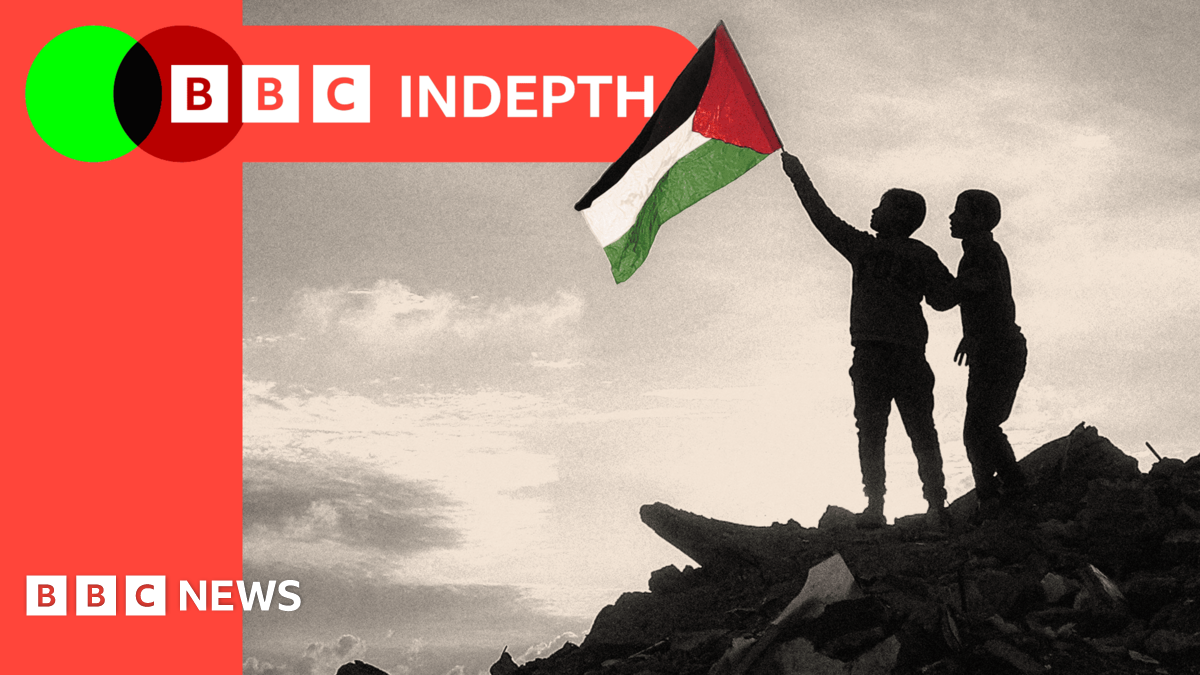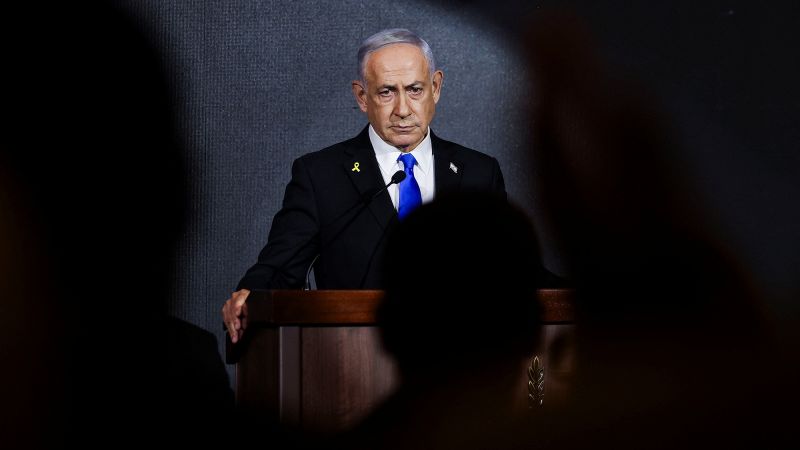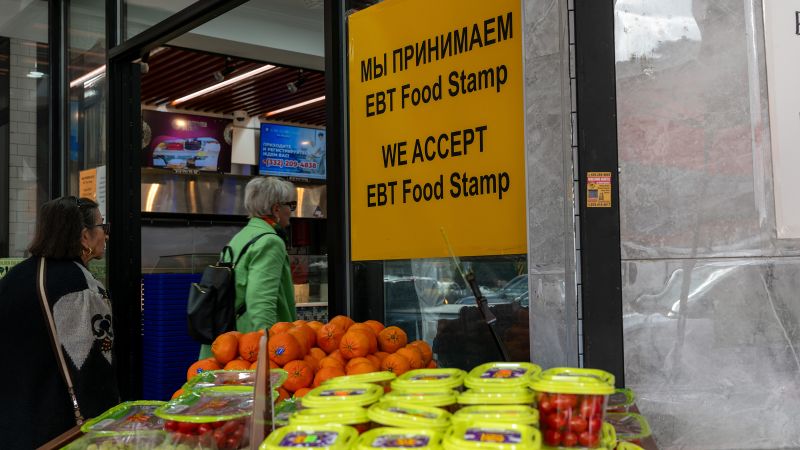The Leadership Question: Obstacles To Palestinian Statehood

Welcome to your ultimate source for breaking news, trending updates, and in-depth stories from around the world. Whether it's politics, technology, entertainment, sports, or lifestyle, we bring you real-time updates that keep you informed and ahead of the curve.
Our team works tirelessly to ensure you never miss a moment. From the latest developments in global events to the most talked-about topics on social media, our news platform is designed to deliver accurate and timely information, all in one place.
Stay in the know and join thousands of readers who trust us for reliable, up-to-date content. Explore our expertly curated articles and dive deeper into the stories that matter to you. Visit Best Website now and be part of the conversation. Don't miss out on the headlines that shape our world!
Table of Contents
The Leadership Question: Obstacles to Palestinian Statehood
The dream of a sovereign Palestinian state remains elusive, despite decades of international efforts and negotiations. While the Israeli-Palestinian conflict is multifaceted, a critical, often overlooked, obstacle lies in the very leadership guiding the Palestinian people. This article delves into the complexities of Palestinian leadership and its impact on achieving statehood.
Internal Divisions and Factionalism:
One of the most significant hurdles is the deep-seated division between Fatah, the dominant faction in the West Bank, and Hamas, which controls Gaza. This division has resulted in a fractured political landscape, hindering unified action and effective negotiation with Israel. The ongoing conflict between these factions, often marked by violence and political maneuvering, undermines any possibility of a united front pushing for statehood. This internal struggle distracts from the core issue of achieving Palestinian self-determination. The lack of a cohesive national strategy weakens their international standing and negotiating power.
Lack of Accountability and Transparency:
Criticisms of a lack of accountability and transparency within Palestinian leadership further complicate the path to statehood. Allegations of corruption and authoritarian practices erode public trust and hinder the development of strong, democratic institutions – essential for a functioning state. Without robust checks and balances, the potential for effective governance and equitable resource allocation remains limited. This lack of transparency also affects international perceptions and donor confidence, potentially impacting crucial financial aid and diplomatic support.
Economic Challenges and Dependence:
The Palestinian economy is heavily reliant on foreign aid and is significantly hampered by Israeli occupation policies. This economic vulnerability makes the leadership vulnerable to external pressures and less able to prioritize long-term nation-building. Furthermore, the lack of economic independence limits the ability to implement crucial social and infrastructural reforms needed for a stable state. This economic dependence also affects the leadership’s ability to implement independent foreign policy, reinforcing the cycle of dependence.
Negotiating Strategies and International Relations:
The approaches taken by Palestinian leadership in negotiations with Israel have also been subject to significant debate. Some critics argue that certain strategies have been ineffective or even counterproductive, hindering progress toward a two-state solution. Maintaining strong and effective international relations is crucial for garnering support and diplomatic pressure on Israel. However, internal divisions and perceived inconsistencies in Palestinian leadership's stance often complicate these international relationships.
The Path Forward: Rebuilding Trust and Fostering Unity
Overcoming these obstacles requires a fundamental shift in the approach to Palestinian leadership. This includes:
- Promoting internal reconciliation: Finding common ground between Fatah and Hamas is paramount for creating a unified Palestinian body capable of effectively negotiating with Israel.
- Strengthening democratic institutions: Establishing transparent and accountable governance structures is crucial for building public trust and promoting sustainable development.
- Diversifying the economy: Reducing reliance on foreign aid and fostering economic independence are vital for long-term stability and sovereignty.
- Developing a coherent and effective negotiating strategy: A united front with a clear vision and consistent approach is crucial for successful negotiations with Israel.
The path to Palestinian statehood is fraught with challenges, but addressing the leadership question is essential for progress. Only through internal reconciliation, good governance, and a clear strategic vision can the Palestinian people achieve their long-held aspiration of self-determination. The international community also has a crucial role to play in supporting these efforts and encouraging a just and lasting solution to the Israeli-Palestinian conflict. This requires consistent diplomatic pressure, targeted aid focused on strengthening Palestinian institutions, and sustained commitment to a two-state solution. The future of Palestine hinges on its ability to overcome these leadership hurdles and build a strong, unified, and prosperous nation.

Thank you for visiting our website, your trusted source for the latest updates and in-depth coverage on The Leadership Question: Obstacles To Palestinian Statehood. We're committed to keeping you informed with timely and accurate information to meet your curiosity and needs.
If you have any questions, suggestions, or feedback, we'd love to hear from you. Your insights are valuable to us and help us improve to serve you better. Feel free to reach out through our contact page.
Don't forget to bookmark our website and check back regularly for the latest headlines and trending topics. See you next time, and thank you for being part of our growing community!
Featured Posts
-
 Durant Frustrated By Suns Trade Talks Leaks
Sep 23, 2025
Durant Frustrated By Suns Trade Talks Leaks
Sep 23, 2025 -
 Decision Made Gatwick Airport Secures Approval For New Runway
Sep 23, 2025
Decision Made Gatwick Airport Secures Approval For New Runway
Sep 23, 2025 -
 Landry Kiffins Instagram Post Sparks Speculation Jaxson Dart Lookalike Featured
Sep 23, 2025
Landry Kiffins Instagram Post Sparks Speculation Jaxson Dart Lookalike Featured
Sep 23, 2025 -
 Kevin Durant And The Rockets Analyzing Ben Simmons As A Potential Free Agent Acquisition
Sep 23, 2025
Kevin Durant And The Rockets Analyzing Ben Simmons As A Potential Free Agent Acquisition
Sep 23, 2025 -
 Nba Free Agency Ben Simmons A Potential Target For Durants Rockets Following Van Vleet Injury
Sep 23, 2025
Nba Free Agency Ben Simmons A Potential Target For Durants Rockets Following Van Vleet Injury
Sep 23, 2025
Latest Posts
-
 International Recognition Of Palestine Netanyahus Response And Us Backing
Sep 23, 2025
International Recognition Of Palestine Netanyahus Response And Us Backing
Sep 23, 2025 -
 Did Letting Go Of Jimmy Kimmel Hurt Abc Financially A Look At The Numbers
Sep 23, 2025
Did Letting Go Of Jimmy Kimmel Hurt Abc Financially A Look At The Numbers
Sep 23, 2025 -
 Fara Williams Pays Tribute To Matt Beard One Of A Kind Liverpool Manager
Sep 23, 2025
Fara Williams Pays Tribute To Matt Beard One Of A Kind Liverpool Manager
Sep 23, 2025 -
 Historic Cuts To Food Assistance Programs Trump Administration Suppresses Hunger Report
Sep 23, 2025
Historic Cuts To Food Assistance Programs Trump Administration Suppresses Hunger Report
Sep 23, 2025 -
 No Golden State For Kd Kevin Durant On Why The Trade Didnt Happen
Sep 23, 2025
No Golden State For Kd Kevin Durant On Why The Trade Didnt Happen
Sep 23, 2025
